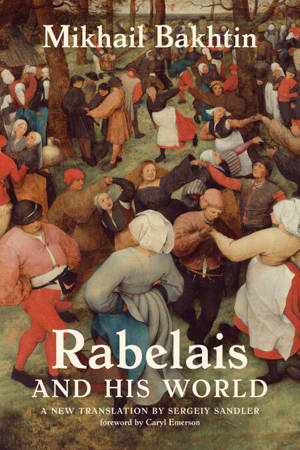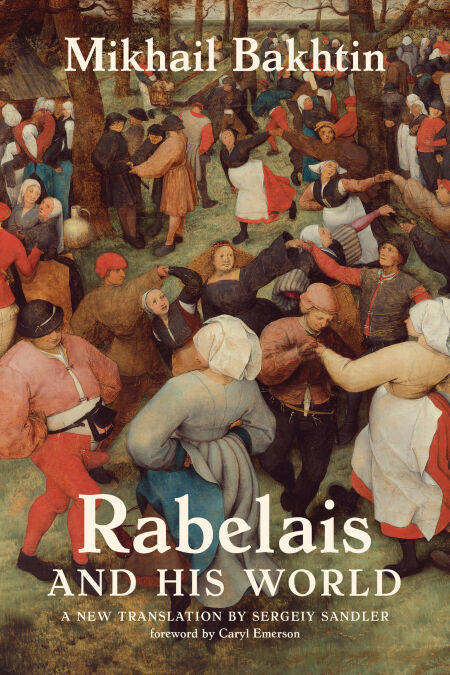
Bedankt voor het vertrouwen het afgelopen jaar! Om jou te bedanken bieden we GRATIS verzending (in België) aan op alles gedurende de hele maand januari.
- Afhalen na 1 uur in een winkel met voorraad
- In januari gratis thuislevering in België
- Ruim aanbod met 7 miljoen producten
Bedankt voor het vertrouwen het afgelopen jaar! Om jou te bedanken bieden we GRATIS verzending (in België) aan op alles gedurende de hele maand januari.
- Afhalen na 1 uur in een winkel met voorraad
- In januari gratis thuislevering in België
- Ruim aanbod met 7 miljoen producten
Zoeken
€ 44,35
+ 44 punten
Omschrijving
A new and improved translation of Mikhail Bakhtin’s classic and celebrated study of carnival.
Mikhail Bakhtin’s classic study of carnival, laughter, the grotesque, and medieval and renaissance folk culture has been the inspiration for countless new ideas in the humanities, in literature and the arts, and throughout human culture over the last half century.
Rabelais and His World is a study devoted to French Renaissance writer François Rabelais, author of Gargantua and Pantagruel. Rabelais, Bakhtin argues, can only be properly understood against the backdrop of a millennia-old tradition of festivity and laughter, a tradition that included the Roman Saturnalia, medieval carnivals and feasts of fools, and Greek satyr plays and symposia from antiquity, as well as countless medieval works belonging to various smaller genres, circus shows, foul language and gesture, and much more.
Bakhtin claims this tradition is united by the imagery it uses and the worldview it expresses. Its imagery is ambivalent. It effaces the boundaries between bodies, connects in one image birth with death, praise with invective. Its worldview is optimistic, defeating all fears and all official seriousness with laughter.
The book’s new translation is informed by recent scholarship on Bakhtin and contains the most extensive scholarly apparatus this book has received to date.
Mikhail Bakhtin’s classic study of carnival, laughter, the grotesque, and medieval and renaissance folk culture has been the inspiration for countless new ideas in the humanities, in literature and the arts, and throughout human culture over the last half century.
Rabelais and His World is a study devoted to French Renaissance writer François Rabelais, author of Gargantua and Pantagruel. Rabelais, Bakhtin argues, can only be properly understood against the backdrop of a millennia-old tradition of festivity and laughter, a tradition that included the Roman Saturnalia, medieval carnivals and feasts of fools, and Greek satyr plays and symposia from antiquity, as well as countless medieval works belonging to various smaller genres, circus shows, foul language and gesture, and much more.
Bakhtin claims this tradition is united by the imagery it uses and the worldview it expresses. Its imagery is ambivalent. It effaces the boundaries between bodies, connects in one image birth with death, praise with invective. Its worldview is optimistic, defeating all fears and all official seriousness with laughter.
The book’s new translation is informed by recent scholarship on Bakhtin and contains the most extensive scholarly apparatus this book has received to date.
Specificaties
Betrokkenen
- Auteur(s):
- Vertaler(s):
- Uitgeverij:
Inhoud
- Aantal bladzijden:
- 752
- Taal:
- Engels
Eigenschappen
- Productcode (EAN):
- 9780262384278
- Verschijningsdatum:
- 27/10/2025
- Uitvoering:
- E-book
- Beveiligd met:
- Adobe DRM
- Formaat:
- ePub

Alleen bij Standaard Boekhandel
+ 44 punten op je klantenkaart van Standaard Boekhandel
Beoordelingen
We publiceren alleen reviews die voldoen aan de voorwaarden voor reviews. Bekijk onze voorwaarden voor reviews.









